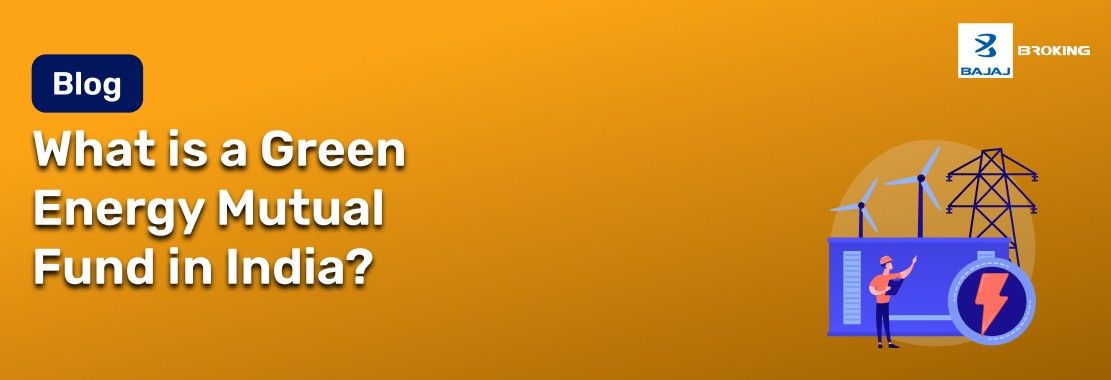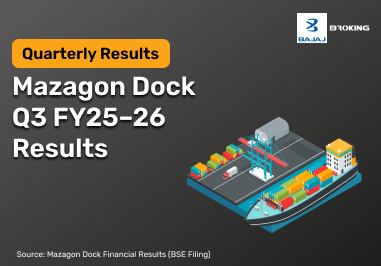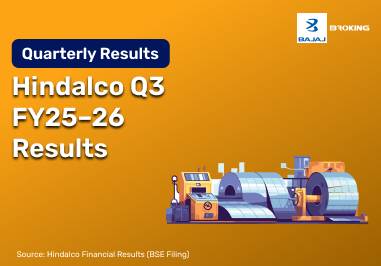A green energy mutual fund in India is simply an investment fund that focuses on companies involved in renewable energy or other eco-friendly work. These funds pool money from many investors and use it to invest in companies that work with technologies like solar, wind, and hydropower. The goal is to support projects that are good for both the planet and the economy.
If you're interested in supporting environmentally friendly projects, understanding green energy is the first step. To get started with these mutual funds and tap into this growing sector, you might consider opening a Demat account with a broker like Bajaj Broking.
What is Green Energy?
Green energy mutual funds let you align your investments with your values. They offer a way to potentially grow your money while also backing companies that help the environment.
These funds primarily invest in companies dedicated to renewable energy. This approach supports the planet and offers investors a chance to be part of a forward-looking industry. Knowing the basics of renewable energy sources like solar and wind power can help you make smart investment decisions in this area.
Understanding Green Energy Mutual Funds Meaning in Detail
A thematic fund is a type of mutual fund that centres its investments in green energy. It pools money from different investors and invests that money in companies that operate in renewable energy. Energy generated from solar, wind, and hydro are all examples. The whole theory behind it is to allow individuals to put their money into something that creates clean energy rather than into simply drilling for fossil fuels.
To get started in this growing industry, the first step is opening a Demat account with a trusted broker, like Bajaj Broking. This account will make it easy for you to access a wide range of mutual funds.
Investing in green energy mutual funds is one way people can support the clean energy movement. This is good for the environment and gives investors a chance to get in on a business that is growing quickly. These funds are more than just a way to make money; they also show that you care about the future. They are a great choice for people who want to protect the environment.
How Do Green Energy Mutual Funds Work?
Pooling Capital: The fund collects money from many investors who share a common goal of investing in green energy.
Professional Management: A single fund manager (or team) makes all the choices on where to invest. They have to look into and analyse firms in the green market to find the optimal investments.
Focused Investing: The money that is pooled is only put into the stocks of firms that engage in renewable energy, including those that specialise on solar, wind, or biomass.
Diversification: The fund doesn't just acquire shares in one or two firms; it buys shares in many different ones. It spreads the money over a wide variety of enterprises in the sector. This diversity is a great approach to decrease the risk that comes with depending on the success of only one firm.
Fund Objective: The main purpose is to make money over the long run by putting money into green energy firms that are likely to do well over time.
Liquidity: Just like other open-ended mutual funds, investors can generally buy or sell their fund units on any business day, making it easy to access your investment.
Importance of Green Energy Mutual Funds Investments in India
Sustainability: One of India's national aims is to consume fewer fossil fuels and release less carbon dioxide. This will help the country expand in a way that is healthy for the planet.
Impact on the economy: The rise of the renewable energy sector affects the economy because it produces jobs in areas like operations, project management, and manufacturing.
Energy Security: If more people use renewable energy sources at home, they won't have to rely on fossil fuels that come from other countries as much. These fuels can cost a lot of money.
Climate change: One of the main goals of fighting climate change is to speed up the switch to renewable energy. This helps the fight against climate change and cuts down on air pollution.
Policy support: The Ministry of New and Renewable Energy (MNRE) and other government policies and incentives are meant to benefit the renewable sector, assist it grow, and make money for businesses.
Types of Energy Mutual Funds to Consider
Conventional Energy Funds: These funds invest in companies that work in traditional energy fields, such as oil and natural gas.
Broad Green Energy Funds: These are theme funds that invest in a lot of different types of renewable energy, such as solar, wind, and hydroelectric power.
Sector-Specific Funds: These funds only invest in companies that work in a certain industry, such as those that only deal with solar energy.
Exchange-Traded Funds (ETFs): These funds for renewable energy try to follow the performance of an index made up of companies that use green energy. For example, certain green ETFs trade on Indian markets and track an index of Indian companies that engage in this field.
Key Features of Green Energy Mutual Funds
Thematic Focus: The funds primarily invest in firms that concentrate on renewable energy and other sustainable ways of operation.
Portfolio Diversification: The fund manager invests in several companies that are involved in the green energy industry. This diversifies the risk rather than investing the entire amount of money in a single or two companies or technologies.
Professional Management: The people who make fund choices on the suitable companies to invest in are professional fund managers who are well informed about the renewable energy industry and do extensive research in the industry.
Entry into an Expansive Industry: Through these funds, investing in the renewable energy industry is very easy since the world is shifting to cleaner sources of energy.
Value Alignment: They allow investors to invest in funds which are consistent with their own environmental, social, and governance (ESG) values.
Benefits of Investing in Green Energy Mutual Funds
Sustainability: This lets investors make investments in firms that focus on renewable and eco-friendly energy sources.
Inbuilt Diversification: This is an investment that automatically diversifies your investment to a large number of companies in the renewable energy sector. This risk management assists in diversification of your investment; thus, it does not rely on the success of a single or two companies.
Aligning one's values: Investors may make sure that their money is in accordance with their convictions, such as living in a way that doesn't affect the environment and safeguarding it.
Policy Tailwinds: Government policies and incentives that promote the usage of renewable energy are excellent for the industry.
Getting involved in a growing field: This is a way for you to become involved in the renewable energy market, which is developing swiftly all around the world.
Additional Read: Green Bond: Meaning, Types, Features, Utility & Examples
Factors to Consider Before Investing in Green Energy Mutual Funds
Before you invest in any theme fund, even one that focuses on green energy, there are a few things you should consider. These funds are concentrated on one area, which might make them more volatile than equity funds that invest in a range of industries.
Risk Profile: Keep in mind that each location has its own hazards when it comes to themed funds. The performance is very closely tied to how well the renewable energy industry is doing.
Time Frame for Investment: These are normally suitable for folks who desire to put their money away for a lengthy period.
Cost Ratio: Check out the fund's expenditure ratio, which is a fee that influences how much money you make on your investment.
Fund Portfolio: Check out the fund's holdings to discover how varied they are in the business, such as solar, wind, and equipment.
Risks Associated with Green Energy Mutual Funds in India
There are some risks that come with investing in green energy mutual funds that don't come with investing in a lot of other funds. The main problem is that the industry is small.
Regulatory and Policy Risks: The renewable energy industry is very much affected by government action. Subsidy and tax break changes, or environmental regulations, could have a significant impact on the financial situation of businesses operating in this sector.
Technology Risk: This industry is dynamic because of emerging innovations. When the technology of a company becomes obsolete, it may adversely affect the performance of the fund as well as decrease the value of the company.
Sector Volatility: Thematic funds are generally not as diversified as mutual funds tied to the broader market. They will only be invested in one sector, which may create another layer of volatility since the performance of the fund will be tied to the performance of the sector.
Operational and Financial Risks: Corporations do falter when it comes to projects being delivered on time and on budget. Some companies, especially younger companies, may even have financial issues stemming from excessive debt or lack of funding.
Liquidity Risk: There is a chance that the companies in the green energy theme don't really trade in the market, especially the ones with less market capitalisation. This could make it hard for fund managers to buy or sell large amounts of shares without changing the price of the shares.
Major Green Energy Mutual Funds Available in India
Here are some prominent green energy mutual funds in India that have shown solid performance and focus on the renewable energy sector:
Bajaj Finserv Mutual Fund: Offers over 1,000 schemes on its platform, including ESG funds for ethical investment. The fund is equipped with a tool to compare various funds, monitor their performance, and understand their tax obligations.
Nippon India Power & Infra Fund: Holding an equity fund, the Nippon India Power and Infra Fund aims to foster growth in the energy sector. The one-year return is 82.42%, and the three-year CAGR is 40.88%.
SBI Energy Prospects Fund: This fund invests in companies in the natural resources and energy sectors that meet the evolving trends of green energy and offer good growth opportunities.
Tata Resources & Energy Fund: This fund invests 80% of its assets in companies that are relevant to the energy and resources sectors to promote sustainable energy.
The DSP Natural Resources & New Energy Fund: Achieving a return of 8.39% in the month of April in 2024, shows a focus on green energy.
How to Invest in Green Energy Mutual Funds in India?
It's easy to invest in green energy mutual funds. It works the same way as buying any other mutual fund. You need to be KYC (Know Your Customer) compliant first. After that, you should read the fund's Scheme Information Document (SID). This important paper talks about the fund's goals, how it plans to invest, and all the costs.
You can opt to put in a huge amount all at once, which is termed a lump sum. You may also use a Systematic Investment Plan (SIP) to invest small sums on a regular basis. You can invest through a mutual fund distributor, a financial advisor, or directly on the website of the asset management company (AMC) or your trading app.
Tax Benefits and Regulations for Green Energy Mutual Funds
When you invest your money in green energy mutual funds, you're not just helping the environment; you could potentially save money, too, because of tax benefits and regulations.
Tax Benefits: Some green energy funds may enable you to reduce taxes owed. Section 80C of the Income Tax Act allows for deductions that reduce your taxable income.
Short-Term Capital Gains: Section 111A states that short-term capital gains on equity (with Securities Transaction Tax) will be taxed at 15% until July 23, 2024, and 20% on or after this date.
Long-Term Capital Gain: Transfers made before July 23, 2024, are taxed at 20%, while transfers made on or after that date are taxed at 12.5%.
Government Programmes: The Government of India aggressively promotes renewable energy and provides incentives to make these investment opportunities more attractive.
Regulatory Framework: You can rest assured that your investment is safe. All funds have to adhere to SEBI regulation, which provides transparency and security for investors.
Certification: Some funds have specific "green certifications" that show they are good for the environment. This is another way to show that your money is going to real initiatives that are good for the environment.
Conclusion
In short, green energy mutual funds are a type of theme fund. They invest in enterprises that employ energy sources that don't run out. This allows you to join the large, expanding movement for renewable energy.
But they also have certain dangers because they are funds based on a topic. Their prices can vary more than those of a fund that invests in many different sectors since they only invest in one area. Changes in government rules might also make it harder for them to conduct their duties successfully. It's vitally important to know these precise dangers, as well as the fund's aims and fees, before you invest in it.















